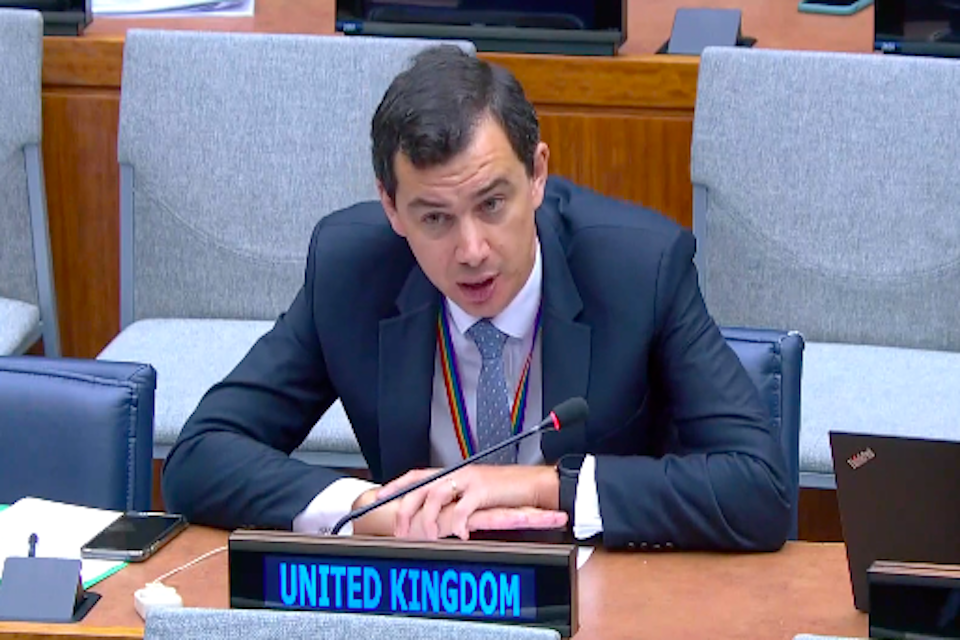The UK supports the expansion of the Security Council
Statement by Ambassador Richard Croker, at the Intergovernmental Negotiations on Security Council reform

Thank you Co-Chairs.
On behalf of the United Kingdom I’d like to thank you for taking on the responsibility of co-chairing this session of the Intergovernmental Negotiations on Security Council reform.
The UK recognises that the world is not the same today as it was in 1946 when the Security Council first met, or as it was in 1965 when it was last expanded. This is why the UK has long supported reform of the Security Council. This task is more relevant and important today than ever. At a time when the Charter itself is under threat following Putin’s unprovoked invasion of Ukraine it is incumbent on all of us to ensure the Security Council is able to uphold international peace and security. And to show that we are united in our commitment to the principle that no state should threaten or use force against the territorial integrity or political independence of another, as enshrined in the Charter.
The UK believes that to fulfil its important mandate, the Security Council must be efficient, effective, and accountable. This is why the UK was proud to co-sponsor the initiative led by Liechtenstein last year to bring greater scrutiny to the use of the veto in the Security Council. And it is why we approach the task of Security Council reform seriously. Although we recognise its inherent challenges, we believe momentum for change is building around the UN, and hope that all Member States will approach these negotiations with flexibility and the intent to make progress.
We remain convinced that a move to text-based negotiations in a fixed timeframe could help us to make meaningful progress on our collective task. I would like to reiterate the UK’s longstanding position – as articulated recently by Foreign Secretary James Cleverly: the UK supports the permanent membership of Brazil, Germany, India, and Japan; permanent African representation; and the further expansion of the non-permanent category towards a total membership in the mid-20s.
Our position is grounded on the core principles of the UN Charter: that the Council should represent the world whose peace and security it seeks to protect and should draw on diverse perspectives and expertise. And that Council members are willing and able to contribute to the maintenance of international peace and security. On the question of regional representation, we are also clear that the Council acts on behalf of the whole membership and therefore we remain clear that States are elected to the Council, by the General Assembly, in their own right. We note that this is reflected in the Co-Chairs Elements Paper of 2022.
Thank you, co-chairs for convening this meeting. We look forward to discussions in the coming months as a further step towards securing a Security Council that is fit for purpose for the twenty first century.